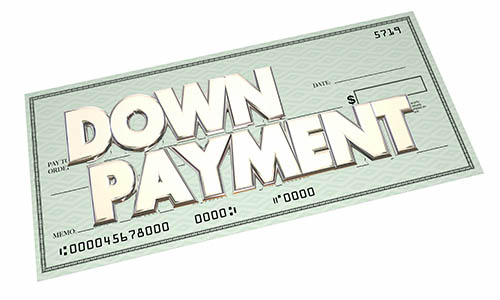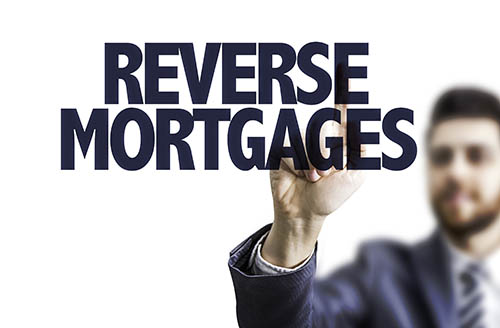 Buying a home is an ideal investment for many people because not only is it a place that belongs to them, it can also be very beneficial financially. While you may be strongly considering buying a home for these reasons, it’s also important to be in good financial health so that your ideal home purchase is within reach. If you’re currently perusing the market for prospects, here are some reasons you should pay down debt before taking the leap into home ownership.
Buying a home is an ideal investment for many people because not only is it a place that belongs to them, it can also be very beneficial financially. While you may be strongly considering buying a home for these reasons, it’s also important to be in good financial health so that your ideal home purchase is within reach. If you’re currently perusing the market for prospects, here are some reasons you should pay down debt before taking the leap into home ownership.
Good Credit History
The amount of your debt load and whether or not you’re paying off your minimum monthly payments has a considerable impact on your mortgage approval, so ensuring that you have good credit history going into the process is important. If you’ve had hiccups with your credit, make sure you go through your credit report prior to submitting your application to determine where you’re at.
Lowering Your Debt-to-Income Ratio
Whether or not you’ve heard the term, your debt-to-income ratio (DTI) has a significant impact on how much house you can afford. Made up of the amount of your monthly debt payment and current house payment, your DTI should be below a certain percentage as this will enable you to afford a higher home payment each month.
Shifting Interest Rates
Getting a mortgage is one thing, but interest rates add more to the monthly amount you’ll owe. A fixed-rate mortgage can seem like a good idea, but if interest rates are low you may end up paying more than you would on a variable rate, which can be hard to predict. As interest rates are a part of home ownership, having lower debt will enable you to deal with these additional costs.
Finding The Right Home
Putting your money into a home can be one of the best purchases you’ll make, but if you’re unable to afford the home you love, it can be a disappointing fact to face. While there are no assurances that paying down debt will enable you to afford your dream home, it can go a long way towards giving you more options that will fit your budget.
Buying a home can be a money saver in the long run, but if you’re struggling to keep up with your debt payments buying into the market can be more of a burden than anything else. If you’re currently paying down debt and considering a home purchase, contact your local real estate professional for more information.
 With approximately one million people having purchased vacation homes in the last year, this type of residence is gaining popularity for those who are interested in a home in a beach setting or a vacation hot spot. However, while a second home can seem like a great purchase and solid investment opportunity, there are different requirements that go into this type of purchase. If you’re considering a vacation home, you may want to be aware of the following financial factors.
With approximately one million people having purchased vacation homes in the last year, this type of residence is gaining popularity for those who are interested in a home in a beach setting or a vacation hot spot. However, while a second home can seem like a great purchase and solid investment opportunity, there are different requirements that go into this type of purchase. If you’re considering a vacation home, you may want to be aware of the following financial factors. If you’re just jumping into the game of home purchasing, you are likely considering all of your loan options and may even have heard the term mortgage rate lock. For those who don’t like to gamble, a mortgage rate lock can offer a bit of reassurance, but there are also some downsides to this type of protection. Before signing off on this, here are the details on rate locks so you can make an informed decision.
If you’re just jumping into the game of home purchasing, you are likely considering all of your loan options and may even have heard the term mortgage rate lock. For those who don’t like to gamble, a mortgage rate lock can offer a bit of reassurance, but there are also some downsides to this type of protection. Before signing off on this, here are the details on rate locks so you can make an informed decision. There are few things more exciting than finding your ideal home, but with the rising cost of housing, a person’s dream home can often come with a very high purchase price. If you’re wondering how much home you can truly afford and how your cost of living will fare for your mortgage approval, here are some of the details on what you can expect when it comes to finding a home at an affordable price.
There are few things more exciting than finding your ideal home, but with the rising cost of housing, a person’s dream home can often come with a very high purchase price. If you’re wondering how much home you can truly afford and how your cost of living will fare for your mortgage approval, here are some of the details on what you can expect when it comes to finding a home at an affordable price. If you’re just getting into the real estate market, you may have heard that 20% down is the ideal percentage in order to lower your monthly payments and get your mortgage application approved. However, while 20% is often suggested, many people struggle to come up with this amount of money. If you’re staving off home ownership, here are some reasons you may not need to hold off as you long as you thought.
If you’re just getting into the real estate market, you may have heard that 20% down is the ideal percentage in order to lower your monthly payments and get your mortgage application approved. However, while 20% is often suggested, many people struggle to come up with this amount of money. If you’re staving off home ownership, here are some reasons you may not need to hold off as you long as you thought. Most people who have been on the market for a home are familiar with what the term ‘mortgage’ means, but many have not heard of a reverse mortgage and aren’t aware of how this product can benefit them. If you’re nearing retirement and are contemplating a new home or even relocation to another community, here are the details on a reverse mortgage and how this option may benefit you.
Most people who have been on the market for a home are familiar with what the term ‘mortgage’ means, but many have not heard of a reverse mortgage and aren’t aware of how this product can benefit them. If you’re nearing retirement and are contemplating a new home or even relocation to another community, here are the details on a reverse mortgage and how this option may benefit you.